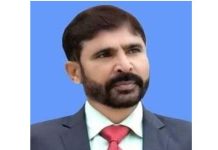Tariq Fatemi
President Barack Obama’s “America is at a crossroads” speech last week has reignited debate in the United States around the issue of terrorism. The Republicans have accused him of declaring victory prematurely, while Liberals are upset that he continues to hew closely to the discredited Bush policies.
Given the emotions that this issue continues to arouse in the US and the conflicting interests that drive its agenda, such differing views are not surprising. A dozen years after 9/11 that transformed the US and left its deep imprint on the globe, the president’s call for narrowing the scope of the “global war on terror”, while beginning the transition that would no longer keep the country on a permanent war-footing, may appear inadequate to those expecting him to honour promises articulated while first campaigning for the White House. Nevertheless, his pledge to ensure “appropriate balance between our need for security and preserving those freedoms that make us who we are”, would reassure some of his admirers. It will, however, take many more initiatives to undo the damage done to America’s core values by the Bush administration.
The president spoke of a realignment of counterterrorism policy that would curtail the use of drones, renew efforts to close Guantanamo Bay prison and seek limits on his own war powers. Claiming that al Qaeda was now “on the path to defeat”, he urged that “this war, like all wars, must end”, even though America’s effort to defeat the terrorists would be maintained as well.
President Obama’s willingness to consider limiting his own authority, including setting up of a secret court or an independent body, within the Executive Branch to oversee the operation, is a step in the right direction. His call on Congress to “refine and ultimately repeal” the authorisation of force law passed in the wake of 9/11 and his vow to close Guantanamo Bay Prison would please his supporters, who have watched with dismay the Executive Branch’s tendency to whittle away US concepts of human rights laws.
Details of other changes are still not known as President Obama’s new policy guidelines remain a classified document but authoritative sources claim that the new order would shift responsibility for drones away from the CIA and to the Pentagon — except in the case of Pakistan till 2014. Since so much of Bush’s “global war on terror” was focused on this region, Obama’s new policy — especially on drones — is of interest and relevance to Pakistan.
Drone strikes on Pakistan, the preferred option since 2004, over 350 have been acknowledged so far. While credited with being instrumental in the elimination of major al Qaeda figures, they are also responsible for the deaths of hundreds of innocent civilians, with funeral processions and wedding parties targeted as well. The drones have also come to symbolise America’s disdain for international law, undermining the principle of non-intervention and prohibition on the use of force, as mandated by the UN Charter. Consequently, they have stoked widespread anti-American sentiments in Pakistan, creating a credibility crisis for the government, which is suspected of collusion with the US, while engaging in ritualistic denunciations.
In this context, the decision to continue with drone strikes, while imposing tougher standards for authorising them, would be viewed as inadequate and not in sync with popular sentiments in Pakistan. Nevertheless, it is a welcome step, for which much credit goes to the civil society, the media and political parties that have consistently made their opposition to this widely acknowledged illegal action crystal clear.
The challenge for the incoming government would be to convince the US that a complete cessation of drone strikes would not only remove a major irritant in bilateral ties but add to its ability to promote a credible dialogue process with the Taliban. But this has to be accompanied by a firm resolve to implement a well thought out comprehensive strategy to eliminate both the causes and symptoms of terrorism.
First Published in The Express Tribune, May 29th, 2013.











